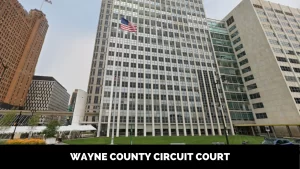Monmouth County Surrogate
Time
Working Hours:
Monday: 8:30 am–4 pm
Tuesday: 8:30 am–4 pm
Wednesday: 8:30 am–4 pm
Thursday: 8:30 am–4 pm
Friday: 8:30 am–4 pm
Saturday: closed
Sunday: closed
Connect with a Attorney
Monmouth County Surrogate plays a vital role in the administration of estates, guardianships, and adoptions within Monmouth County, ensuring that the interests of the residents are protected and legal matters are handled appropriately. This article will provide an overview of the responsibilities and duties of the Monmouth County Surrogate, the probate process, the selection of executors/administrators, guardianships, and the services offered by the Monmouth County Surrogate Court.
Introduction to Monmouth County Surrogate
The Monmouth County Surrogate is a public official appointed to oversee various legal matters involving estates, guardianships, and adoptions. The office of the surrogate ensures that the affairs of individuals who have passed away are handled in accordance with the law and that the best interests of minors and incapacitated individuals are safeguarded.
What is the Role of the Monmouth County Surrogate?
The primary role of the Monmouth County Surrogate is to administer the estates of individuals who have passed away, ensuring that their assets are distributed to the rightful beneficiaries. In addition to estate administration, the surrogate also appoints guardians for minors and incapacitated individuals, oversees adoptions, and maintains records related to these matters.
Responsibilities and Duties of the Monmouth County Surrogate
Administering Estates and Trusts
When someone passes away, their estate goes through the probate process, which involves validating the will, identifying assets, paying debts and taxes, and distributing the remaining assets to beneficiaries. The Monmouth County Surrogate plays a crucial role in this process by accepting and reviewing wills, granting letters testamentary or letters of administration, and supervising the estate administration.
Appointing Guardianships
In situations where individuals are unable to care for themselves or manage their affairs due to age, incapacity, or disability, the Monmouth County Surrogate appoints guardians. Guardianships ensure that the personal and financial needs of the incapacitated individuals are met by responsible individuals who act in their best interests.
Overseeing Adoptions
The Monmouth County Surrogate is also responsible for overseeing adoptions within the county. The surrogate’s office ensures that all legal requirements are met, providing a thorough review of the adoption proceedings and issuing the necessary orders and certificates to complete the process.
The Process of Probate in Monmouth County
Probate is the legal process through which a deceased person’s assets are distributed to their beneficiaries. The probate process in Monmouth County typically involves several steps, including:
Filing the Will
The first step in the probate process is filing the will with the Monmouth County Surrogate’s office. The surrogate verifies the validity of the will and determines its authenticity.
Inventory and Appraisal
After the will is filed, an inventory of the deceased person’s assets is prepared. This includes valuing the assets, such as real estate, investments, and personal property, to determine the total value of the estate.
Payment of Debts and Taxes
Before distributing the assets to beneficiaries, the deceased person’s outstanding debts, taxes, and expenses must be paid. The Monmouth County Surrogate ensures that all legitimate claims are addressed and resolved.
Distribution of Assets
Once all debts and taxes have been settled, the remaining assets are distributed to the beneficiaries as specified in the will or determined by the laws of intestacy if there is no will.
How to Choose an Executor or Administrator
When planning an estate, it is essential to designate an executor or administrator who will be responsible for managing the estate’s affairs after your passing. Here are some factors to consider when making this important decision:
Executor vs. Administrator
If you have a will, you can name an executor to carry out your wishes. If you die without a will, the court will appoint an administrator to handle the estate. Both the executor and administrator are responsible for managing the estate’s affairs, including paying debts, filing tax returns, and distributing assets.
Factors to Consider in Selection
When choosing an executor or administrator, it’s crucial to consider their trustworthiness, organizational skills, financial acumen, and availability. Additionally, selecting someone who understands your wishes and is willing to fulfill their responsibilities diligently is vital.
Understanding Guardianships in Monmouth County
Guardianships are established to protect the interests and well-being of individuals who are unable to make decisions for themselves. Here’s an overview of guardianships in Monmouth County:
When Are Guardianships Necessary?
Guardianships are necessary when an individual is unable to make decisions regarding their personal and financial affairs due to incapacity, disability, or age. This could include minors or adults with developmental disabilities, mental illnesses, or physical limitations.
Types of Guardianships
In Monmouth County, there are two primary types of guardianships: guardianship of the person and guardianship of the estate. The former involves making decisions related to the personal well-being of the incapacitated individual, while the latter deals with managing their financial matters.
Appointment and Responsibilities of Guardians
The Monmouth County Surrogate appoints guardians after a thorough review of the circumstances and qualifications of the potential guardians. Once appointed, guardians have the responsibility to act in the best interests of the incapacitated individual and make decisions that promote their well-being and financial security.
Monmouth County Surrogate Court Services
The Monmouth County Surrogate Court offers a range of services to assist residents with various legal matters. Some of the key services provided by the surrogate’s office include:
Probate and Estate Administration
The surrogate’s office handles the probate and administration of estates, ensuring that the legal requirements are met, and assets are distributed appropriately. They provide guidance and support throughout the process, addressing any concerns or disputes that may arise.
Guardianships and Conservatorships
For individuals in need of guardianships or conservatorships, the Monmouth County Surrogate Court offers assistance in appointing suitable guardians and overseeing their responsibilities. They ensure that the best interests of the incapacitated individuals are protected.
Adoptions and Name Changes
The surrogate’s office oversees adoptions within Monmouth County, ensuring that all legal requirements are fulfilled. They facilitate the necessary procedures and issue the appropriate documentation to finalize the adoption process. Additionally, the office handles name change petitions, providing guidance and processing the necessary paperwork.
Surrogate’s Records and Genealogy Research
The Monmouth County Surrogate’s office maintains records of wills, estates, and other related matters. They assist individuals in accessing these records for genealogy research or other purposes, ensuring the privacy and confidentiality of sensitive information.
Monmouth County Surrogate Forms
When dealing with legal matters related to estates, guardianships, adoptions, or other proceedings overseen by the Monmouth County Surrogate, it is essential to have access to the appropriate forms. These forms help individuals and legal professionals navigate the processes efficiently. The Monmouth County Surrogate provides various forms that can be accessed and downloaded from their official website or obtained directly from their office. These forms include:
- Estate Administration Forms: These forms are necessary when administering an estate through the probate process. They may include the Application for Probate, Executor/Administrator Oath, Inventory and Appraisal Forms, and Final Account Forms. These forms help streamline the estate administration process, ensuring all required information is provided accurately.
- Guardianship Forms: When seeking guardianship for a minor or an incapacitated individual, specific forms need to be completed. These may include the Petition for Guardianship, Guardian’s Report, Consent Forms, and Letters of Guardianship. These forms enable individuals to initiate the guardianship process and provide relevant information to the Monmouth County Surrogate.
- Adoption Forms: Forms related to the adoption process are essential for those seeking to adopt a child. These forms typically include the Petition for Adoption, Consent Forms, and Adoption Finalization Forms. These forms help gather necessary information and ensure compliance with the legal requirements for adoption.
- Name Change Forms: If an individual wishes to change their name legally, the Monmouth County Surrogate provides forms for this purpose. These forms typically include the Petition for Name Change and Consent Forms. These forms allow individuals to initiate the name change process and provide the required details.
By accessing and completing the appropriate forms provided by the Monmouth County Surrogate, individuals can ensure that their legal matters are handled properly and efficiently.
Monmouth County Surrogate Satellite Offices
To better serve the residents of Monmouth County, the Monmouth County Surrogate operates satellite offices in various locations. These satellite offices provide convenient access to services related to estates, guardianships, adoptions, and other matters overseen by the Surrogate. The satellite offices are strategically located to cater to different regions within Monmouth County, making it easier for residents to access Surrogate services without traveling long distances.
While the primary office of the Monmouth County Surrogate is located at the county courthouse, the satellite offices offer additional accessibility and convenience. Residents can visit these satellite offices to obtain information, submit necessary forms, and seek guidance regarding their specific legal matters. The satellite offices are staffed with knowledgeable personnel who can assist individuals with their queries and provide guidance throughout the processes.
It is advisable to check the official website of the Monmouth County Surrogate for the addresses and operating hours of the satellite offices. By visiting the nearest satellite office, residents can access the services they require more conveniently, ensuring that their legal needs are addressed promptly and efficiently.
Monmouth County Surrogate Fees
When engaging in legal processes overseen by the Monmouth County Surrogate, certain fees may be applicable. These fees help cover the costs associated with administering estates, appointing guardians, overseeing adoptions, and providing various services. It is important to be aware of the fees associated with specific actions to ensure proper planning and budgeting.
The fees charged by the Monmouth County Surrogate may vary depending on the nature of the service or proceeding. Some common fees include:
- Probate Fees: Probate fees are typically based on the value of the assets being probated. The Monmouth County Surrogate may charge a percentage of the estate’s total value as a probate fee.
- Guardianship Fees: Guardianship fees may be applicable when seeking the appointment of a guardian for a minor or an incapacitated individual. These fees cover the administrative costs associated with reviewing and processing guardianship petitions.
- Adoption Fees: When pursuing adoption, certain fees may be required to cover the administrative costs associated with reviewing and finalizing the adoption process. These fees help support the services provided by the Monmouth County Surrogate in facilitating adoptions.
It is important to note that fee structures and amounts may change over time, so it is advisable to consult the official website of the Monmouth County Surrogate or contact their office directly for the most up-to-date information on fees.
Monmouth County Surrogate Search
The Monmouth County Surrogate maintains records and information related to various legal matters, including estates, guardianships, adoptions, and more. Conducting a Monmouth County Surrogate search can be helpful when researching family histories, verifying estate details, or gathering information for legal purposes.
To conduct a Monmouth County Surrogate search, there are a few avenues to explore:
- Surrogate’s Office: The Monmouth County Surrogate has a dedicated office where individuals can inquire about specific records or conduct searches. Visiting the office in person or contacting them via phone or email can provide access to the desired information. It is advisable to provide relevant details such as names, dates, and case numbers to facilitate the search process.
- Online Resources: The Monmouth County Surrogate’s website may offer online resources for conducting searches or accessing certain records. These resources may include searchable databases, indexes, or guidelines on how to request specific records.
- Third-Party Services: In some cases, third-party services or websites may offer access to Monmouth County Surrogate records or provide assistance in conducting searches. These services may require a fee, and it is important to ensure their legitimacy and credibility before utilizing them.
When conducting a Monmouth County Surrogate search, it is essential to gather as much relevant information as possible to facilitate the process. This includes names, dates, case numbers, and any other pertinent details related to the search. By utilizing available resources and contacting the Monmouth County Surrogate directly, individuals can access the information they seek for their specific purposes.
Monmouth County Probate Records
Probate records play a crucial role in the administration of estates and the distribution of assets in Monmouth County. These records provide important documentation of the probate process, including the validation of wills, the identification and appraisal of assets, the payment of debts and taxes, and the ultimate distribution of assets to beneficiaries.
Accessing Monmouth County probate records can be valuable for various reasons, including genealogical research, verifying inheritance rights, or settling legal disputes. Here are some key points to consider when seeking Monmouth County probate records:
- Monmouth County Surrogate’s Office: The Monmouth County Surrogate’s office is the primary source for probate records. They maintain and preserve these records for public access. Visiting the Surrogate’s office in person or contacting them directly is the most reliable way to access probate records.
- Case Information: To effectively search for probate records, it is helpful to provide the Surrogate’s office with specific case information, such as the decedent’s name, date of death, and any available case numbers. This information assists the staff in locating the relevant records quickly and accurately.
- Record Availability: While probate records are generally available for public access, there may be certain restrictions on accessing records that are deemed confidential or sensitive. It is advisable to inquire with the Surrogate’s office regarding any specific restrictions or requirements for accessing certain records.
- Online Resources: The Monmouth County Surrogate’s website may provide online resources or guidelines for accessing probate records. These resources may include search portals, indexes, or instructions on how to request specific records.
By contacting the Monmouth County Surrogate’s office and providing the necessary information, individuals can access probate records for their intended purposes. It is important to respect any restrictions on confidential records and handle the information obtained with appropriate care and privacy.
Monmouth County Surrogate Case Search
Conducting a Monmouth County Surrogate case search can be useful when researching specific legal cases, verifying information, or gathering details for legal purposes. Here are some avenues to explore when conducting a Monmouth County Surrogate case search:
- Surrogate’s Office: The Monmouth County Surrogate’s office is the primary resource for conducting a case search. Visiting the office in person or contacting them directly via phone or email can provide access to the desired information. It is advisable to provide relevant details such as case numbers, names, dates, and any other pertinent information to facilitate the search process.
- Online Resources: The Monmouth County Surrogate’s website may offer online resources or guidelines for conducting a case search. These resources may include search portals, indexes, or instructions on how to request specific case information.
- Third-Party Services: In some cases, third-party services or websites may offer access to Monmouth County Surrogate case records or provide assistance in conducting a case search. It is important to ensure the legitimacy and credibility of these services before utilizing them.
When conducting a Monmouth County Surrogate case search, it is crucial to gather as much relevant information as possible to facilitate the process. Providing details such as case numbers, names, dates, and any other pertinent information will help streamline the search and increase the chances of finding the desired case information. Contacting the Monmouth County Surrogate’s office directly is typically the most reliable method for obtaining case information.
Conclusion
The Monmouth County Surrogate plays a critical role in administering estates, appointing guardians, and overseeing adoptions within the county. Their responsibilities ensure that the legal needs of residents are met and that the best interests of individuals are protected. Understanding the probate process, the selection of executors/administrators, and the establishment of guardianships can help individuals navigate these complex legal matters effectively. The services provided by the Monmouth County Surrogate Court offer invaluable support and guidance throughout these processes.
For more information and access to the services provided by the Monmouth County Surrogate Court, visit their official website.
FAQs
How long does the probate process take in Monmouth County?
The duration of the probate process in Monmouth County can vary depending on the complexity of the estate and any potential legal challenges. On average, the process can take several months to a year or longer.
Can I contest a will in Monmouth County? \Yes, it is possible to contest a will in Monmouth County if you have legitimate grounds for doing so. Contesting a will typically involves demonstrating that the will was not executed properly, the deceased person lacked the mental capacity to make a will, or there was undue influence or fraud involved.
What are the fees associated with filing for guardianship?
The fees associated with filing for guardianship in Monmouth County may vary and depend on the specific circumstances. It is advisable to contact the Monmouth County Surrogate’s office directly to obtain accurate and up-to-date information regarding the fees involved.
How can I obtain a copy of a will filed with the Monmouth County Surrogate?
To obtain a copy of a will filed with the Monmouth County Surrogate, you can contact the surrogate’s office directly. They will provide guidance on the required process and any associated fees for obtaining a copy of the will.
Are there any restrictions on who can adopt in Monmouth County?
The adoption process in Monmouth County has certain requirements and regulations that must be met. While there may be specific eligibility criteria, such as age and marital status, adoption is generally open to individuals and couples who can provide a suitable and loving home for a child. It is advisable to consult with the Monmouth County Surrogate Court or an adoption agency for detailed information on the adoption requirements.






